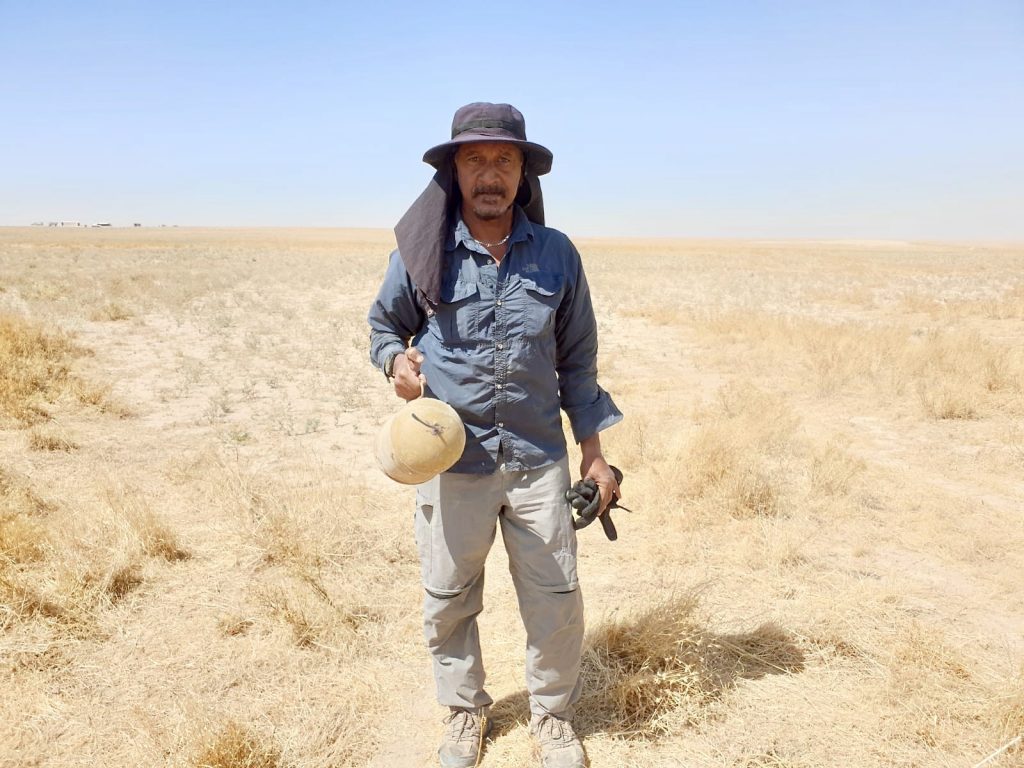[ RICE ] Meet Paul, The Singaporean Who Cleared Taliban Landmines In Afghanistan
When I was young, I wasn’t the most academic kid. So I decided to join the Singapore Armed Forces (SAF) boys school at the age of 16. Then I did my NS, and stayed on to work in the military for 30 years. Eventually, I got to a point where I was no longer satisfied in the military. I had accrued a variety of skills as a soldier but I didn’t feel like I was putting them to use in the right way. I wanted to help others and make a difference, so I started looking into opportunities abroad.

I lived in various places including Kabul, but I was staying in the Kandahar airbase with the coalition forces for the majority of my time there, which meant I was always protected by excellent security. Still, the Taliban would shoot rockets into the airbase, though these would usually explode outside the base, or close to the fence. Never where we lived.
In these countries, people have their lives completely torn apart, but yet, they find a way to move on and live with these difficulties. While witnessing this human will to live is inspiring, if I had not come to these countries I don’t think I would have ever understood what the true impact of war and oppression is on a human life.
In Afghanistan I was working mostly on landmines, which were easier to locate and render safe. In Iraq, I now mostly deal with IEDs which are essentially home-made explosives that are much harder remove.
I always feel some fear in my line of work—it will always be there. Every time I see a bomb in front of me I still get the shivers, those never seem to go away. But with the right technique, concentration and patience, it can be done safely.
While it’s dangerous, I stay in this line because I know I’m making a difference. Many civilians die from landmines and IEDs, and I want to continue working to remove this threat. I take comfort in the fact that what I do directly changes people’s lives. For those who live in farms and villages, clearing their land of explosives allows them to go back to planting, farming, and even to return to their homes.
I also worked in South Sudan for a while which proved to be extremely taxing on my mental health. I heard countless stories of locals being killed and tortured by rebels. The colleagues I was working with there had told me multiple stories of how their family members died in either mines or bombings.
I have lived in Central Asia, the Middle East, Africa, and Papua New Guinea. It’s so enriching to see how people live in different countries, and how cultures are different yet all beautiful. I believe everyone should step out of their comfort zones because it teaches you so much. In Somalia, I lived inside bunkers. At the time, I remember thinking, ‘what am I doing here?’ But looking back, it’s these incredible experiences that have kept me in my line of work.
Now, when I tell people I live in Iraq, they always say: “Wah! Iraq? So dangerous!” But they are wrong, people don’t know what it’s really like there. I would get the same response when I was living in Syria. But Syria has the most incredible people. They are so friendly and hospitable. Civilians would always come up to us and thank us for what we were doing. It’s really heartbreaking what happened there. It’s a country so rich in culture and history, and the people are so peaceful.
It’s the same with Afghanistan, and for that reason it’s so unfortunate that the Taliban have taken control again. All I can say is that Afghan people are strong, and no one can conquer them. They may have taken the land, but they can never take the people.

